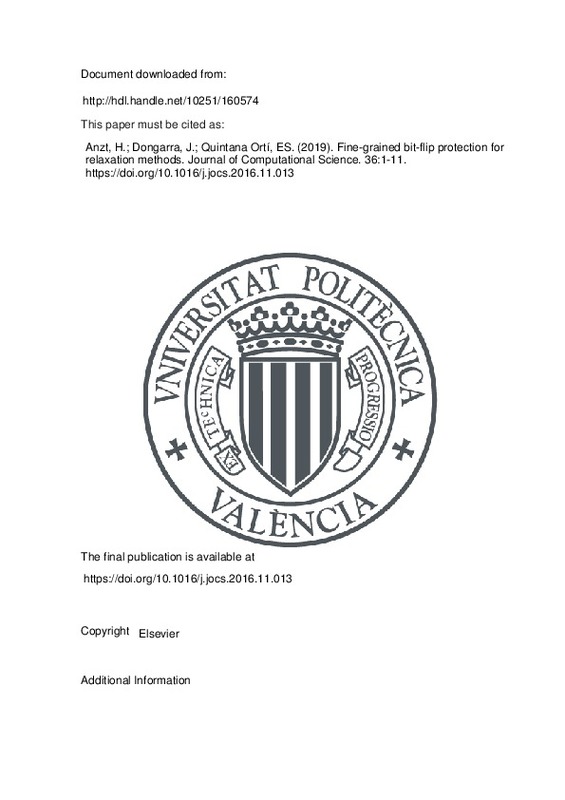JavaScript is disabled for your browser. Some features of this site may not work without it.
Buscar en RiuNet
Listar
Mi cuenta
Estadísticas
Ayuda RiuNet
Admin. UPV
Fine-grained bit-flip protection for relaxation methods
Mostrar el registro completo del ítem
Anzt, H.; Dongarra, J.; Quintana Ortí, ES. (2019). Fine-grained bit-flip protection for relaxation methods. Journal of Computational Science. 36:1-11. https://doi.org/10.1016/j.jocs.2016.11.013
Por favor, use este identificador para citar o enlazar este ítem: http://hdl.handle.net/10251/160574
Ficheros en el ítem
Metadatos del ítem
| Título: | Fine-grained bit-flip protection for relaxation methods | |
| Autor: | Anzt, Hartwig Dongarra, Jack | |
| Entidad UPV: |
|
|
| Fecha difusión: |
|
|
| Resumen: |
[EN] Resilience is considered a challenging under-addressed issue that the high performance computing community (HPC) will have to face in order to produce reliable Exascale systems by the beginning of the next decade. As ...[+]
|
|
| Palabras clave: |
|
|
| Derechos de uso: | Reconocimiento - No comercial - Sin obra derivada (by-nc-nd) | |
| Fuente: |
|
|
| DOI: |
|
|
| Editorial: |
|
|
| Versión del editor: | https://doi.org/10.1016/j.jocs.2016.11.013 | |
| Código del Proyecto: |
|
|
| Agradecimientos: |
|
|
| Tipo: |
|







![[Cerrado]](/themes/UPV/images/candado.png)


